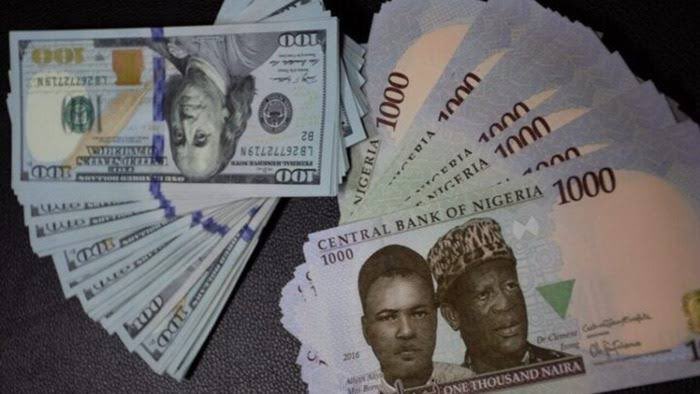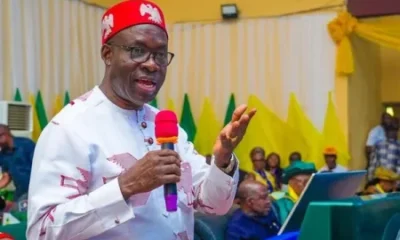Breaking News
Tinubu’s FX Reforms Spark Naira Recovery, Boost Non-Oil Exports by 20%

When President Bola Ahmed Tinubu’s administration dismantled Nigeria’s rigid foreign exchange regime in 2024, critics described it as a “currency collapse.” The naira, which slumped to ₦1,800 per dollar in March 2024, became the symbol of public frustration and economic anxiety.
But 17 months later, fresh data suggests the reforms may be paying off. By August 2025, the naira had strengthened to ₦1,525/$1—a 15.28% rebound in just five months.15 MINUTES VIDEO – No Way She Does This In Public!!, Lagos Lady Caught In The Public Bus With Boyfriend 😲
Analysts attribute the recovery to higher oil receipts, rising diaspora remittances, and the clearance of over $4 billion forex backlogs, which restored investor confidence. The unification of multiple FX windows also introduced a single transparent market rate, allowing the naira to find its true value.
The reforms have had a direct impact on trade. Non-oil exports rose from $2.696 billion in the first half of 2024 to $3.225 billion in the same period of 2025—representing a 19.62% growth. Export volumes also increased from 3.83 million metric tonnes to 4.04 million, indicating foreign buyers were not only paying more but also buying more Nigerian goods.
Experts say this created a “sweet spot” where Nigerian exports became cheaper abroad, exporters earned more in naira, and the economy benefited from stronger forex inflows.
Economic watchers note that this cycle—exchange rate reform leading to exports, exports driving inflows, and inflows stabilising the naira—could fuel long-term growth if sustained.
Critics who once dismissed the reforms as disastrous now face evidence of a rebound.
Economists argue that the Tinubu administration’s willingness to float the naira, rather than prop it up with scarce reserves, may have laid the foundation for an export-driven economy.
-

 Breaking News5 months ago
Breaking News5 months agoBREAKING NEWS: Labour Congress Call For Review Of Minimum Wage, Propose N150,000 Pay For Lagos Workers
-

 Entertainment5 months ago
Entertainment5 months agoBurna Boy Used To Squat In My House – Cubana Chief Priest
-

 Breaking News5 months ago
Breaking News5 months agoALLEGED BLASPHEMY: Angry Youths Kill Female Food Seller In Niger State
-

 Entertainment5 months ago
Entertainment5 months agoBBNaija S10: I Was Prevented From Returning To Show Despite Being Medically Fit – Sabrina
-

 Entertainment5 months ago
Entertainment5 months agoPopular Nigerian Comedian, Josh2Funny And Wife, Bina, Welcome Third Son
-

 Entertainment5 months ago
Entertainment5 months ago[VIDEO] Ibom Air Incident: Comfort Emmanson Opens Up on Traumatic Experience
-

 Breaking News5 months ago
Breaking News5 months agoBREAKING: CAC Extends New Fee Regime To October 1
-

 Entertainment5 months ago
Entertainment5 months agoMedia Personality Toke Makinwa Make Confession On Fearful Pregnancy Journey, Shares Fresh Maternity Shoot
-

 Breaking News5 months ago
Breaking News5 months agoBREAKING: 1 Israeli Soldier Dead, 9 Injured, 4 Missing
-

 Politics5 months ago
Politics5 months agoSoludo Mocks Obi, Declares ADC and LP “Dead” After Anambra By-elections
-

 Breaking News5 months ago
Breaking News5 months agoBukuyum: Air Operations Force Bandits To Release 70 Kidnapped Victims In Zamfara
-

 Breaking News5 months ago
Breaking News5 months agoBREAKING: Hamas Captures Israeli Soldiers in Gaza
